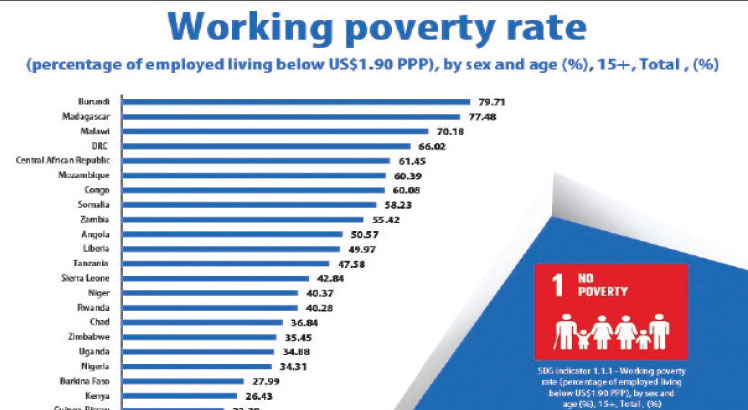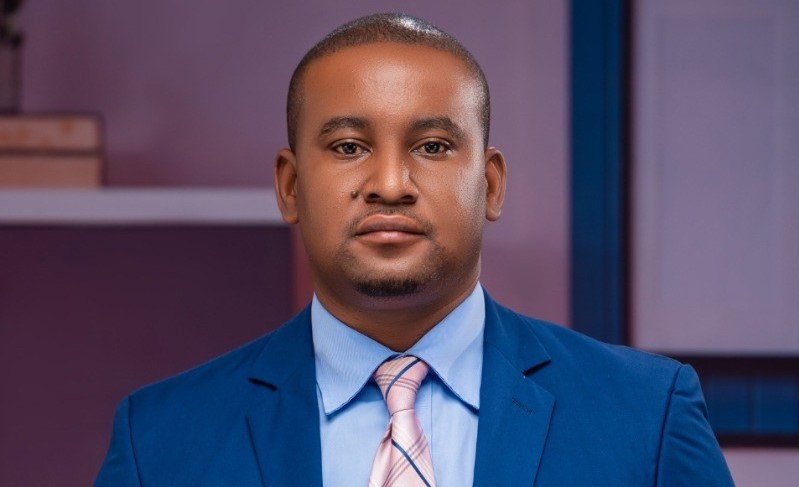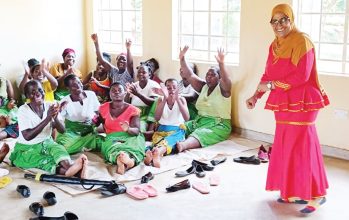Working poverty rate highest in Malawi—UN
Malawi is one of the three countries out of 46 economies in Africa with the highest working poverty rate at 70.18 percent, United Nations Economic Commission for Africa (Uneca) data shows.
International Labour Organisation (ILO) describes the working poverty rate as the proportion of the employed population living in poverty despite being employed.
This implies that their employment-related incomes are not sufficient to lift them and their families out of poverty and ensure decent living conditions.
According to Uneca, Malawi trails Burundi at 79.71 percent and Madagascar at 77.48 percent while Mauritius and Morocco have the least working poverty rate at 0.7 percent.
Speaking in an interview on Tuesday, labour rights activist Luther Mambala said this entails that most workers are living in poverty despite being employed because of poor wages amid the dwindling economic status.

“There is is stagnation of wages and salaries despite the high inflation rate, which is at 29.2 percent,” he said.
Perlin Mwagomba, a 33-year-old meter reader can attest to that as she barely survives on her income.
“After knocking off from work, I sell vegetables and plastic wares just to supplement my income, which at an average of K100 000 is not enough to feed my four-member family and relations in the village,” she said.
Centre for Social Concern economic governance officer Bernard Mphepo said in an interview this implies that the majority of employed people are struggling to access basic needs with the cost of living at K450 000 and minimum wage at only K50 000.
Consumers Association of Malawi executive director John Kapito observed that because of “rampant levels of poverty,” wages earned do not match the cost of living.
In their 2023/24 budget proposals, CfSC, Malawi Congress of Trade Union and other stakeholders had asked the government to revise the minimum wage from the current K50 000 to K200 000 to ease the challenges low-income earners are facing.
However, Employers Consultative Association of Malawi president Anne Chavula is on record as having said employers are operating under pressure from the global economic crises.
In his 2023/24 Budget Statement, Minister of Finance and Economic Affairs Sosten Gwengwe announced an eight percent salary increment for civil servants and introduced the first ever transport allowance.
He, however, maintained the minimum wage at the current K50 000.
Speaking in a separate interview, a development economist attributed the high poverty rate to low salaries and salary increments of below inflation as well as having extended families which limit the resources.
Economist Bond Mtembezeka observed that Malawi has not been performing well economically with population growth rate and real gross domestic product (GDP) growth rate averaging 2.5 percent.
He said: “The difference of the two parameters has resulted in almost zero change in standards of living.
“The other dimension is the real incomes. Inflation has battered Malawi for the longest now and that has tended to erode people’s disposable incomes which [incomes] have remained relatively low.
“So, you will find that a person is working but with little to show for. The incomes are basically hand to mouth kind.”
His counterpart, Edward Chilima observed that except for a lucky few, the majority of Malawians are employed by fragile institutions and non or less profitable sectors of the economy.
“To make things worse, the financial system in Malawi is not developed enough to provide financial products that can cushion them.
“This calls for even employed people to consider thinking out of the box to supplement their low salaries and start some extra activities such as small businesses.”
Meanwhile, Malawi’s year on year inflation has been on the rise, now at 29.2 percent according to the National Statistical Office.





